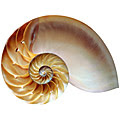 (Ha! they found the genes, yet again?!?!)
(Ha! they found the genes, yet again?!?!)Published In Nature
Combining family- and population-based approaches sheds new light on the potential roles of both common and rare forms of human genetic variationIn one of the first studies of its kind, an international team of researchers has uncovered a single-letter change in the genetic code that is associated with autism.
The finding, published in the October 8 issue of the journal Nature, implicates a neuronal gene not previously tied to the disorder and more broadly, underscores a role for common DNA variation.
In addition, the new research highlights two other regions of the genome, which are likely to contain rare genetic differences that may also influence autism risk.
"These discoveries are an important step forward, but just one of many that are needed to fully dissect the complex genetics of this disorder, " said Mark Daly, one of the study's senior authors, a senior associate member at the Broad Institute of Harvard and MIT and an associate professor at the Center for Human Genetic Research at Massachusetts General Hospital (MGH).
"The genomic regions we've identified help shed additional light on the biology of autism and point to areas that should be prioritized for further study."
"The biggest challenge to finding the genes that contribute to autism is having a large and well studied group of patients and their family members, both for primary discovery of genes and to test and verify the discovery candidates," said Aravinda Chakravarti, professor of medicine, pediatrics and molecular biology and genetics at the McKusick-Nathans Institute of Genetic Medicine at Johns Hopkins, and one of the study's senior authors. "This latest finding would not have been possible without these many research groups and consortia pooling together their patient resources. Of course, they would not have been possible without the genomic scanning technologies either."
Autism is a common neurodevelopmental disorder characterized by impaired social, behavioral and communication abilities. (How long will they keep on repeating this stereotype of Autism like stupid parrots, only God knows!!!)
Compared to other complex diseases, which are caused by a complicated mix of genetic, environmental and other factors, autism is highly heritable - roughly 90% of the disorder is thought to be genetic in origin. (NO KIDDING!!! No mercury from vaccines causing it? No other stupid conclusions?)
Yet the majority of autism cases cannot be attributed to known inherited causes. (Yes, to known inherited causes, maybe you have a lot to still learn? Maybe you dear Science do not know ALL there is to know about inherited causes? How about that possibility? Huh?)
Modern approaches that harness genome-scale technologies have begun to yield some insights into autism and its genetic underpinnings. However, the relative importance of common genetic variants, which are generally present in the human population at a frequency of about 5%, as well as other forms of genetic variation, remains an unresolved question. (Exactly!)
To more deeply probe autism's complex genetic architecture, a large multinational collaboration led by researchers at the Broad Institute of Harvard and MIT, Massachusetts General Hospital, Johns Hopkins University and elsewhere devised a two-pronged, genome-scale approach.
The first component makes use of a family-based method (called "linkage") that analyzes DNA from autism patients and their family members to detect portions of the genome that harbor rare but high-impact DNA variants. The second harnesses a population-based method (known as "association" ) that examines DNA from unrelated individuals and can expose common genetic variants associated with autism and which tend to exert more modest effects.
"Given the genetic complexity of autism, it's unlikely that a single method or type of genomic variation is going to provide us with a complete picture," said Daly.
"Our approach of combining multiple complementary methods aims to meet this critical challenge."
For their initial studies, the researchers examined roughly half a million genetic markers in more than 1,000 families from the Autism Genetic Resource Exchange (AGRE) and the US National Institute of Mental Health (NIMH) repositories. Follow-up analyses were conducted in collaboration with the Autism Genome Project as well as other international groups.
"We are deeply grateful to all of the patients and their families who made this work possible," said Daly.The researchers' results highlight three regions of the human genome. These include parts of chromosomes 6 and 20, the top-scoring regions to emerge from the family-based linkage studies. Although further research is needed to localize the exact causal changes and genes within these regions that contribute to autism, these findings can help guide future work.
Read more: http://www.nature.com/nature/journal/v447/n7145/abs/nature05911.html



Geen opmerkingen:
Een reactie posten